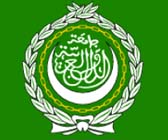Arab League envoy in Beirut to try to end political impasse
 Beirut - Arab League Secretary General Amr Mussa arrived Thursday in Beirut to hold political talks with rival political groups.
Beirut - Arab League Secretary General Amr Mussa arrived Thursday in Beirut to hold political talks with rival political groups.
According to a close aide to Mussa, the Arab League envoy's main objective is to try and broker the Arab League initiative to end the Lebanese political impasse which has kept the country without a president since November 23, 2007.
He added that Mussa is also in Beirut to attend the opening of the Arab Economic Forum on Friday in Beirut.
Mussa refrained from making any statement on his arrival. He was scheduled to meet House Speaker Nabih Berri, who is also a key member of Lebanon's opposition, late Thursday.
He was also to hold talks with Prime Minister Fouad Seniora and key leaders of the ruling majority.
This is Mussa's fifth visit this year to Lebanon to try to broker the three-point Arab initiative, which was adopted in Cairo by Arab foreign ministers in February.
The Arab peace initiative calls for the immediate election of the president to be followed by the formation of a national unity government based on the constitution and the passing of a new electoral law.
Lebanon's majority leader Saad Hariri has called for presidential election on May 13.
"It is the duty of each MP in political blocs who claim they agree on electing consensus candidate (army commander) Michel Suleiman (as president) to go to parliament on May 13, and vote for him," Hariri was quoted as saying earlier this week.
Hariri said he favours dialogue with the opposition on condition a president is elected on May 13. He said he was waiting for a response from Berri for a bilateral meeting to discuss dialogue subjects and guarantee presidential elections.
Berri has called for national dialogue among rival blocs to settle the current political crisis.
The ruling coalition previously rejected Berri's dialogue initiative and refused to open talks before electing a new president.
Lebanon is facing its most complicated political crisis since the 1975-1990 civil war ended.
Rival leaders agreed on Suleiman as a consensus presidential candidate, but could not agree on the shape of the new government or the new election law.
The presidential deadlock has deepened the Lebanese political crisis and fears are mounting that failure in reaching a deal on the presidential candidate could result in more violence in the country. (dpa)